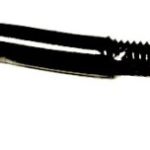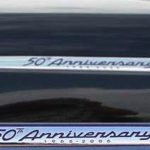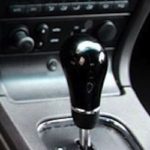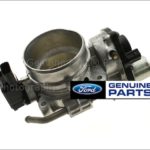If you’ve ever marveled at the fifties futurism of the “nuclear-powered” Ford Nucleon or admired a 1961 Thunderbird, you’ve seen the work of James R. Powers. If you were fascinated by Revell’s see-through model kit of a V-8 engine, you can thank James Powers. If you’ve enjoyed vacationing in a modern motor home, well, Powers again.
As a youngster, he began making wooden model cars and even crafted a very successful soap-box derby racer. The crowning achievement of his formative years as an auto buff was winning a national scholarship award in the Fisher Body Craftsman’s Guild competition.
Using the scholarship, Powers attended the Art Center College of Design. On a recruiting trip to the school in 1955, Alex Tremulis, head of Ford Advanced Design, hired Powers. They became good friends and Powers was a regular weekend guest of Tremulis and his wife at their home
At Ford, in 1956, Powers developed a series of Illustrations showing transportation of the future for PR use in magazines and newspapers around the country. The originals were hung in the Ford styling lobby and executive offices. Later they were shown in a Smithsonian exhibition.
Powers also did concept models of a nuclear-powered car, the Nucleon, and a flying car, the Volante, which were used for PR and later shown at the Smithsonian. The Nucleon is still on display at the Henry Ford Museum. The Volante was recently featured in a BBC documentary on flying cars.
After a couple years at Ford, Powers was assigned to the Ford Production Studio, where he contributed to early-Sixties Galaxies. He also spent time in the Thunderbird studio, where he fashioned the essential concept adopted for the all-new 1961 design.
Later, Powers was named manager of the Lincoln-Mercury Interiors Studio, where he served until leaving Ford in 1964. Powers left Ford to return to California, with its car-friendly climate (Powers had begun amassing a collection of favorite cars). He established a product design and advertising firm whose clients included automotive aftermarket firms, recreational-vehicle manufacturers, car dealers and toymakers.
Recently, Powers closed his firm and settled into semiretirement in South Pasadena, California. He’s still surrounded by cars, though: He’s converted a former office building to an apartment and a repository for his automobile collections, including 24 cars and over 2,000 model cars.
Portions excepted from February 2002 “Collectible Automobile.”





